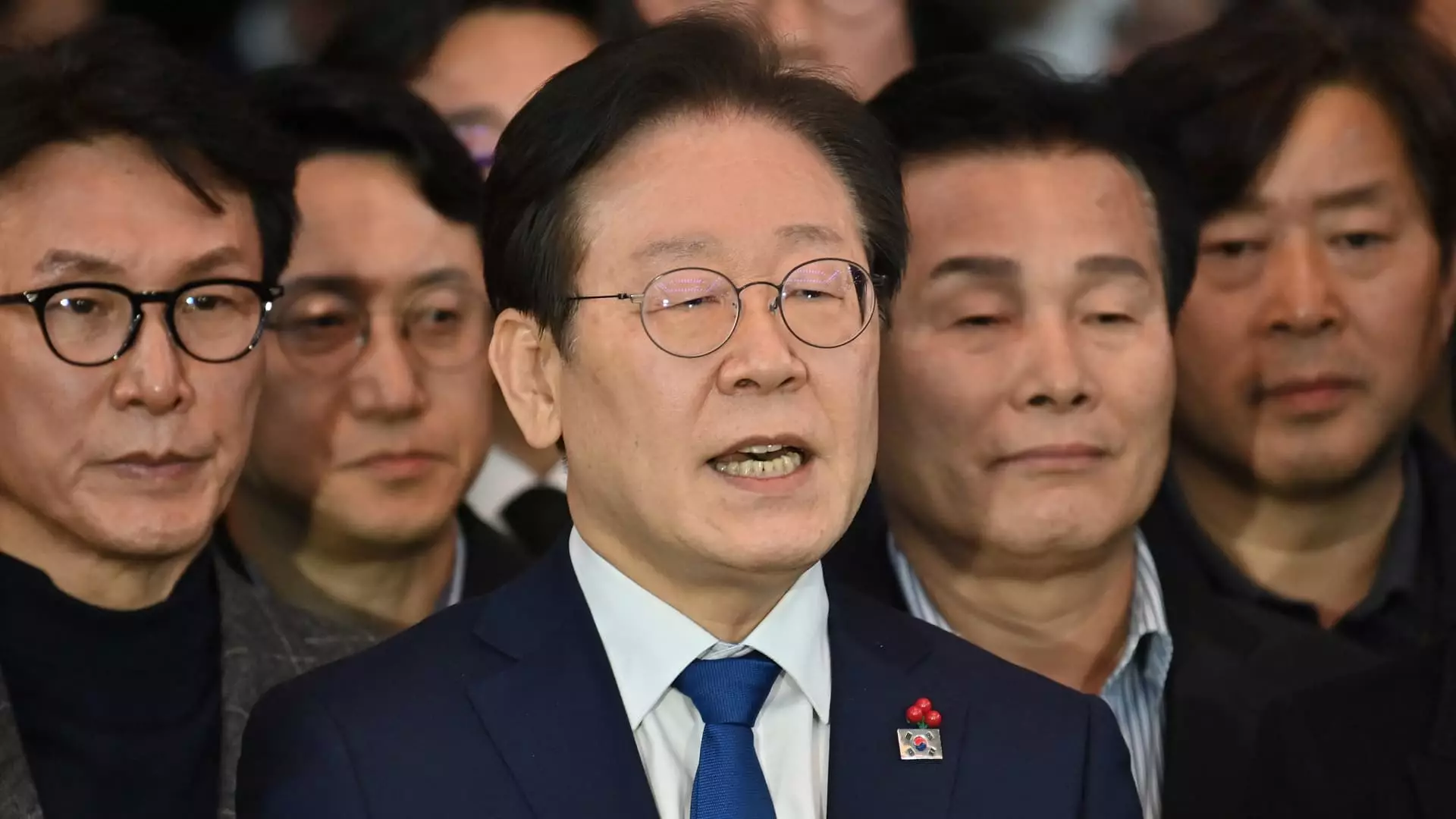In a political landscape marred by instability and uncertainty, the South Korean presidential race seems to have reached a pivotal moment, led by opposition frontrunner Lee Jae-myung. His recent remarks on necessary revisions to the trade tariff negotiations with the United States reflect a critical understanding of international diplomacy that is often overlooked in contemporary politics. Lee implies a fundamental truth: genuine diplomacy hinges on mutual benefit rather than unilateral advantage, and this stance might define the future of South Korea’s economic relationships.
Lee’s call for a reevaluation of the imposed deadlines signals a profound critique of how trade discussions have largely been structured. The current parameters, dictated by American interests, seem less about equitable partnerships and more akin to coercive economic tactics—a modern-day plunder masked as mutual agreement. This approach threatens to deepen existing divides instead of fostering the mutually beneficial cooperation that Lee envisions. His assertion that diplomacy should never lead to the suffering of one side, while the other thrives, is a refreshing perspective that challenges a status quo of economic hostility.
A Broker of Peace Amidst Political Turmoil
The backdrop of Lee’s campaign is drenched in political turmoil following the impeachment of Yoon Suk Yeol. Here is a leader viewing this crisis not merely as a passageway to power but as an opportunity to redefine the nation’s economic vision. By distancing himself from Yoon’s hardline strategies on North Korea, Lee is sending a strong message: he aims not to amplify militaristic rhetoric but rather to prioritize dialogue and socio-economic cooperation. Such a sentiment is not just progressive; it’s necessary. The stark dichotomy between hawkish policy and diplomatic engagement presents a choice for the electorate, rooted in pragmatism rather than dogmatic ideology.
In doing so, Lee signals an understanding that the economics of war and peace are intertwined, suggesting that a more profound and thoughtful engagement with North Korea could indeed ease tensions, injecting a much-needed boost into a troubled economy. He asserts that maintaining robust defense ought to accompany efforts at communication and negotiation—a balance that many politicians appear too intimidated to pursue.
The Challenge of Economic Revival
As he looks ahead, Lee recognizes the urgent need for South Korea to implement measures to combat the looming recession. It’s not merely a matter of policy; it’s a matter of national survival and prosperity. His proposal to form a task force dedicated to addressing economic slowdowns acts as both a bold initiative and a necessary response to the crumbling confidence in domestic markets. Where others may dither, Lee shows leadership potential by insisting on actionable economic strategies that can revive the faltering South Korean economy.
However, the context of these declarations can’t be ignored. The electorate is understandably skeptical after years marked by political maneuvering that prioritizes party power over genuine economic revitalization. In this battleground of ideas, Lee’s firm stance on creating a supplemental budget could resonate well, but the electorate will be waiting, poised with the question: will he deliver beyond rhetoric?
The Polls: A Reflective Indicator of Popular Sentiment
As of now, Lee stands ahead in the polls, a beacon of hope against conservative contenders such as Kim Moon-soo. The narrowing gap, however, signifies voter anxiety and shifting loyalties. The dwindling margin in support from Lee, despite appearing strong at 45%, suggests underlying apprehensions about his ability to lead. His repeated assertions regarding the past administration’s insurrection only serve to highlight the urgency surrounding voter decisions. It’s a strategy imbued with risk; addressing Yoon’s controversies could either galvanize or alienate voters seeking clarity and conviction.
This moment in South Korea demands more than just a leader with charisma; it needs a leader capable of transformative diplomacy that respects all parties involved. Lee Jae-myung appears to be advocating exactly that—a fresh negotiation framework that could potentially overhaul traditional approaches to international trade. He must navigate carefully, embodying the center-left ideal of nuanced approaches while reaffirming his commitment to equity on the global stage. The future of South Korea hinges on this delicate balance of power, diplomacy, and economic strategy, challenging all contenders to present their vision deftly.


Leave a Reply